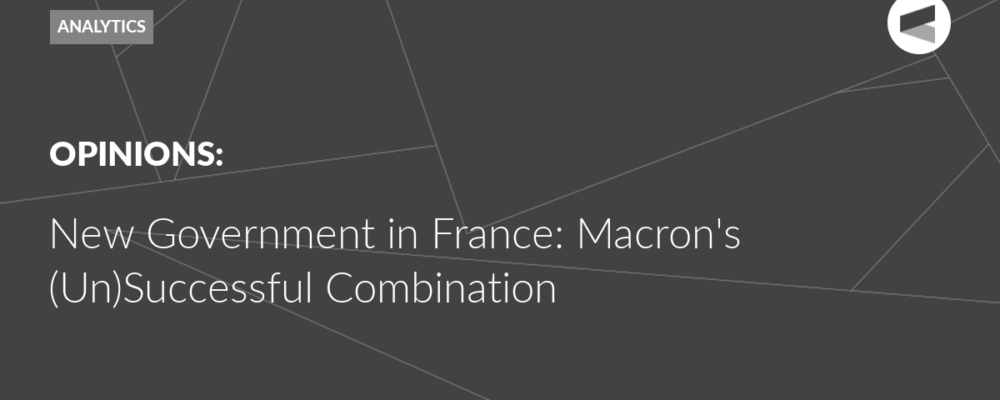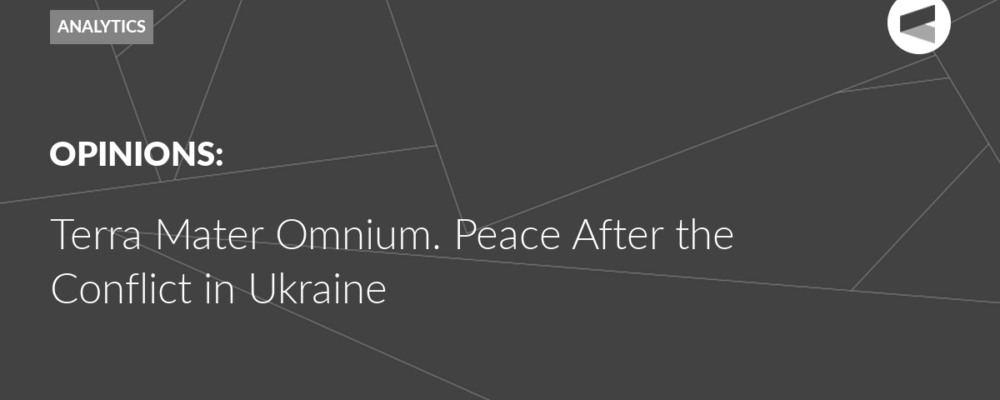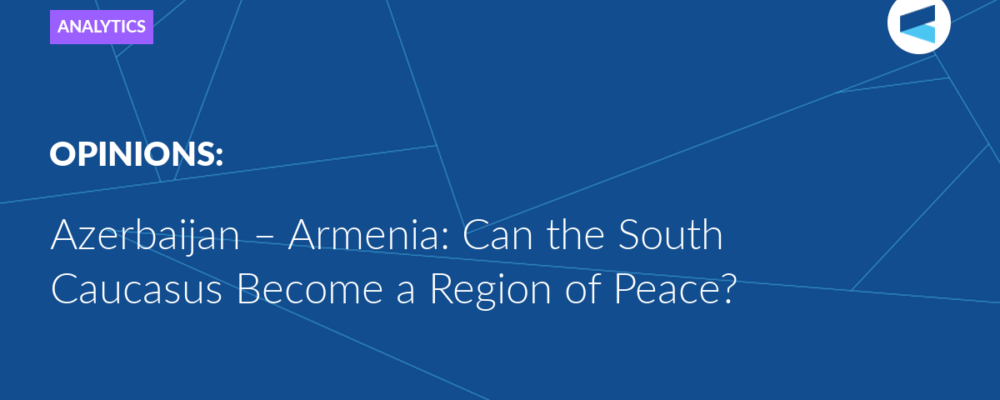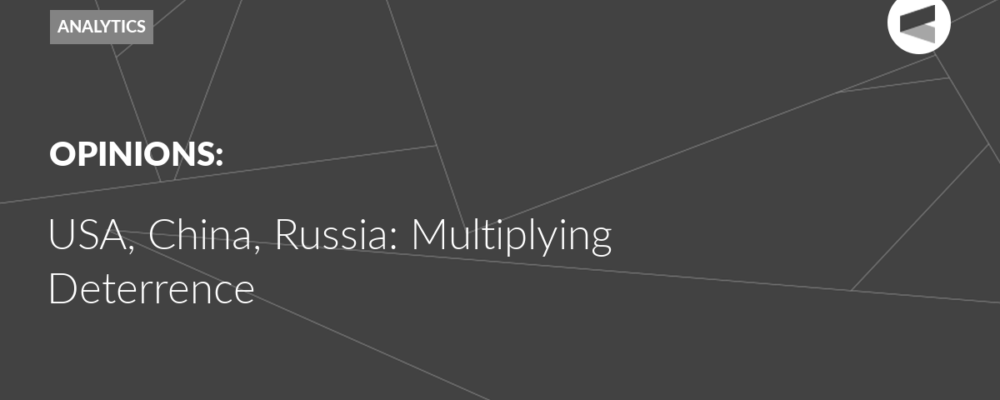On February 24, 2022, the discussion on European security was terminated. Europe defined itself as a community of states hostile to Russia (there are exceptions like Hungary and Slovakia, but they have little influence on the EU as a whole). Economic, political and other ties between the European states and Russia were reduced to a minimum. The question of the European security system boiled down to its hard realist basis: where will the line between Russia and NATO be drawn? Europe, like the rest of the collective West, believes that this line should run along the eastern border of the former Ukrainian Soviet Socialist Republic, and Russia – along its western border.
In the spring of 2024, although the specific outcome of the armed confrontation is unclear, we can confidently say that the West has been unable to defeat Russia as it wanted, and now it is concerned with ensuring that Russia “does not win.” So, in the future, for years, if not decades to come, security in Europe (in the geographical sense of this concept – and the other sense is irrelevant for Russia) will be determined by the balance of power along the line of contact between Russia and NATO. Russia will do everything to maintain this balance for its part and thereby ensure its security. The victory we need in Ukraine, an increase in the size of the Armed Forces, the expansion of the defence industry, the deployment of troops and weapons on the western borders, along with rapid economic and technological development – this is our contribution to the emerging European security system. Will it ever be possible to talk about confidence-building measures, reducing the risk of incidents, and reducing potentials? Of course, but on a mutual basis. Russia has not withdrawn its demand to restrict NATO’s military infrastructure in Europe to within its 1997 borders. At the beginning of 2022, our arguments were not enough. Let’s see if there are enough of them in the future.
It appears that the prospect of meaningful negotiations on the Ukrainian crisis will one day arise again. It is important not to bring meaningless words and concepts into this perspective, or worse, words designed to hide meaning. One of these words is the multi-vector concept. If we are talking about the fact that states can freely build relations with other states around the planet, this is trivial and seems undeniable. If they choose to become a military springboard for hostile actions against their neighbours by third countries – as Ukraine chose back in 2014 – why should they be surprised that the neighbours don’t like it? The illusion that Ukraine will move closer to the European Union, and Russia will pay the bill for this wedding, should have been dispelled by sensible people even before the last coup d’état in Kiev.
The status of Ukraine is an important issue, and if negotiations take place, it will likely be on the table. Options are possible, from international guarantees of demilitarisation and permanent neutrality (as discussed two years ago in Istanbul) to simple international legal formalisation of the order actually established on the territory of the former Ukrainian SSR. But it should be clear to any potential counterparty of Russia in such negotiations: Russia is not interested in determining Ukraine’s status in general, but in ensuring that this status excludes Ukraine’s membership in military blocs to which Russia does not belong, any military cooperation between Ukraine and third countries, and any territorial claims to Russia.
This leads us to another question: what are we talking about when we talk about Ukraine? Whose status will we determine? Ukrainian statehood is dysfunctional. Already in 2022, only American assistance, taken into account as such in American budget statistics (and this is not the entire amount of assistance Ukraine has received from the United States), amounted to almost 40% of the expenditure side of the Ukrainian state budget. Since then, the ratio hasn’t changed in favour of the Ukrainian budget. Ukrainian statehood is now paid for externally. This cannot be considered a consequence of the military actions of the last two years alone. Ten years ago, Ukraine managed to become one of the poorest countries, in GDP per capita (PPP) terms, in the post-Soviet space. Poorer than Georgia, which has almost no industry and has experienced four armed conflicts since the dissolution of the USSR, including a civil war with hostilities in the capital city. The Ukrainian authorities, long before February 24, 2022, took a course of discrimination against millions of their citizens on the basis of their native language and religious affiliation. It is appropriate to ask potential partners in future negotiations now: what is this entity whose status they intend to determine? The ultra-right Azov battalion, banned in Russia, with which the current Ukrainian leadership has long been indistinguishable? Is this a community of political figures supported by grants from the United States and the European Union?
Russia demanded that Kiev extradite those involved in organising terrorist attacks on Russian territory, pointing out that traces of the monstrous terrorist attack in Crocus City Hall “lead to Ukraine”. The other day, the head of the Security Service of Ukraine Malyuk revealed details of the terrorist attacks in Russia, leaving no doubt that this special service was involved in their organisation. It will be impossible to ignore this when talking about the “status of Ukraine” and the very prospect of negotiations. A heavy moral and political responsibility also falls on the West, which for years and decades supported and encouraged such a Ukraine.
A necessary condition for any negotiations is to understand what the potential interlocutor is saying. That debate about European security, which ended two years ago, was greatly poisoned by the Western and European inability to simply correctly understand what exactly Russia was saying. Any statement by Russia was instantly overgrown with interpretations, and then in the West they no longer discussed what Russia was saying, but only their own interpretations.
This will probably sound unexpected to Western observers, but Russia did not set the goal of destroying Ukrainian statehood (although the president warned that continuing Kiev’s current course could cause irreparable damage to this statehood). Russia agreed with Kiev on the key parameters of the settlement in the spring of 2022 in Istanbul, they are known in almost all details. There is no reaction from the West to the Istanbul draft agreement. Russia has repeatedly stated in recent months what it sees as the conditions for negotiations. In response, the West repeats that Russia does not want negotiations or directly calls them pointless. Russia has repeatedly, in detail and at different levels, outlined the reasons why it does not intend to conduct a dialogue with the United States on strategic stability in conditions where Washington is pursuing a hostile course. No, they tell us, without examining these reasons, to separate the conversation about nuclear weapons from everything else in Russian-American relations – as the United States wants. Well, they say, for the sake of “good will”.
The order of medieval theological debate – one of the sources of European and generally Western rationality – suggested that first it was necessary to accurately reproduce the opponent’s arguments and then refute them. We have inherited this in the form of literature review in our academic articles. Seeking understanding from your interlocutor, starting with a demonstration that you do not know his position, is, first of all, irrational. But for now, in the West, they prefer only hear the thunder of guns.
The Valdai Discussion Club was established in 2004. It is named after Lake Valdai, which is located close to Veliky Novgorod, where the Club’s first meeting took place.
Please visit the firm link to site






